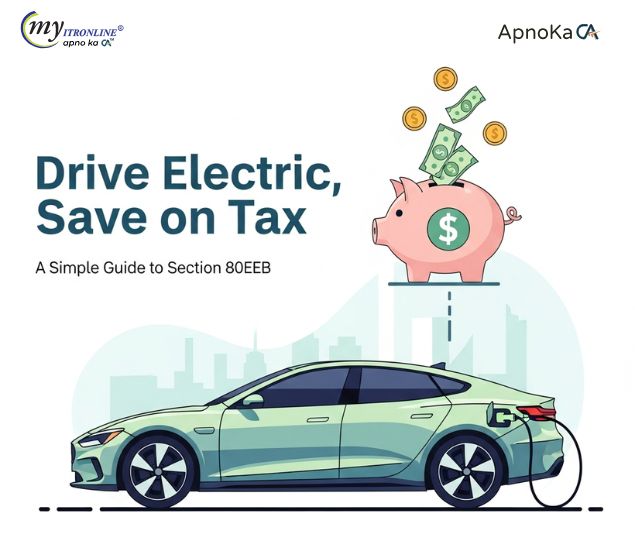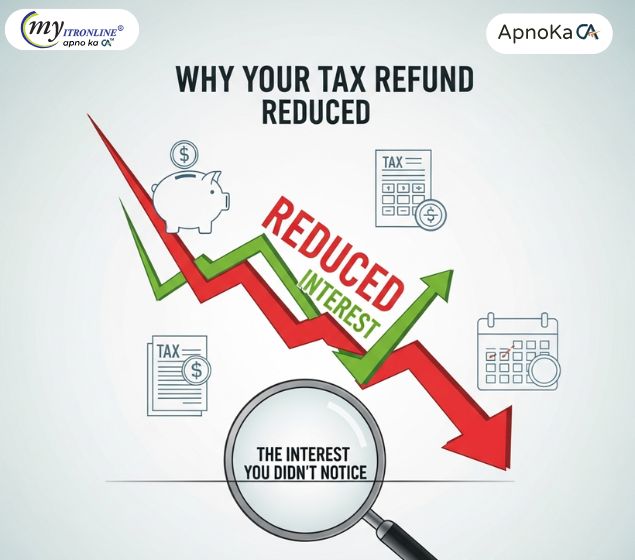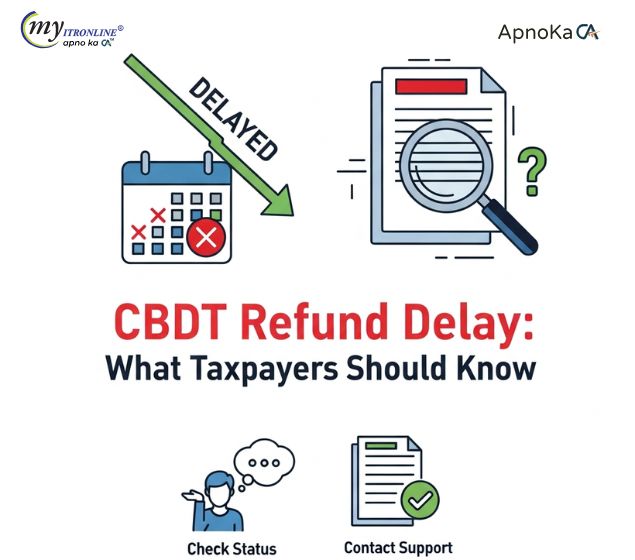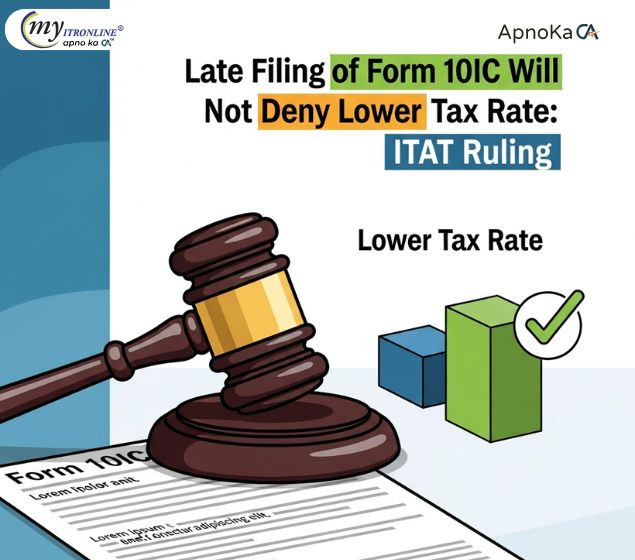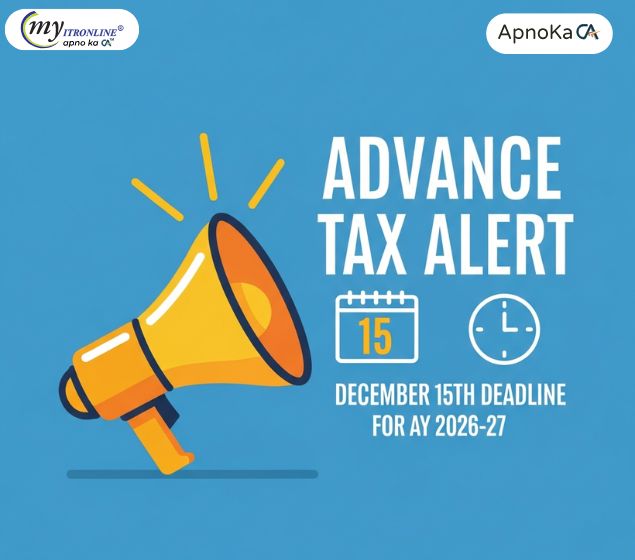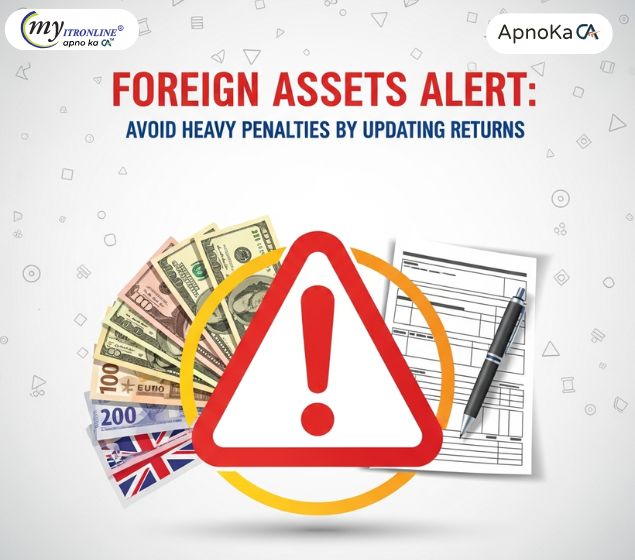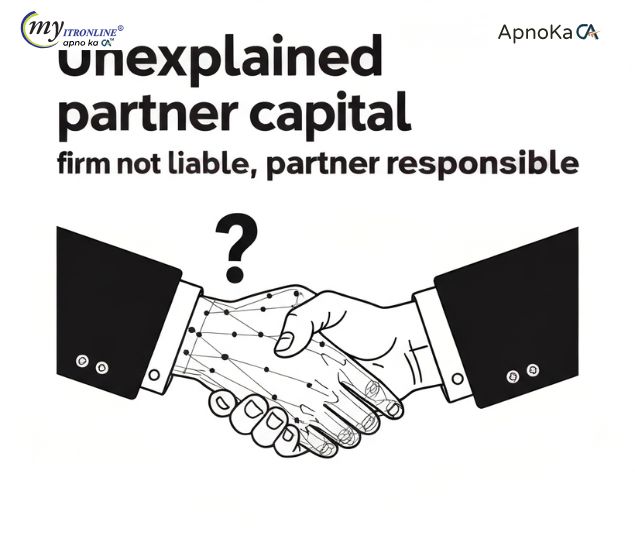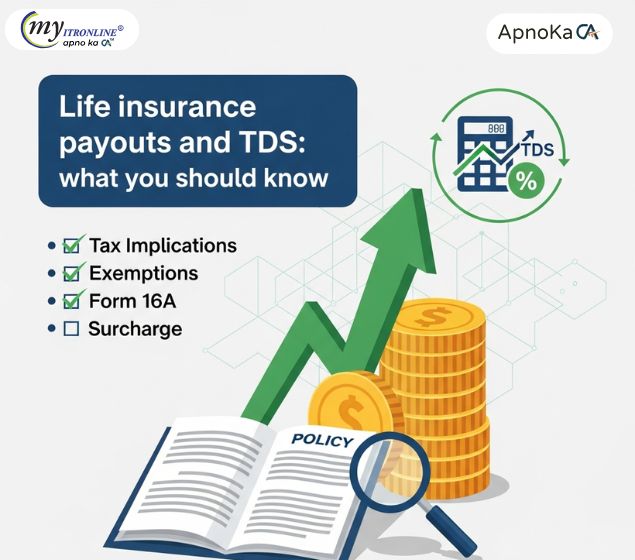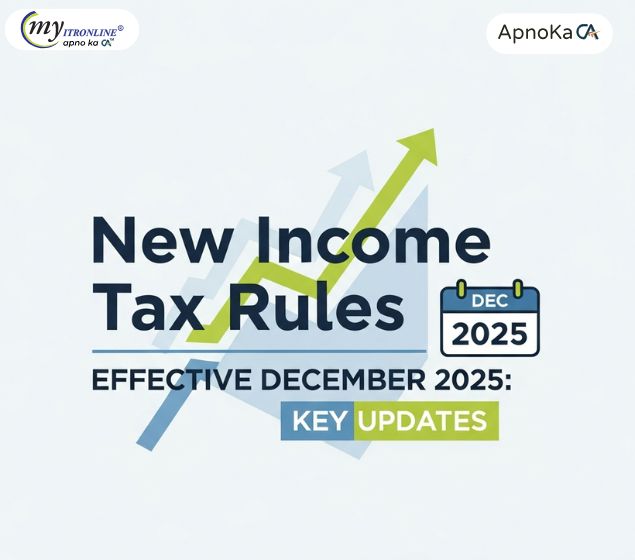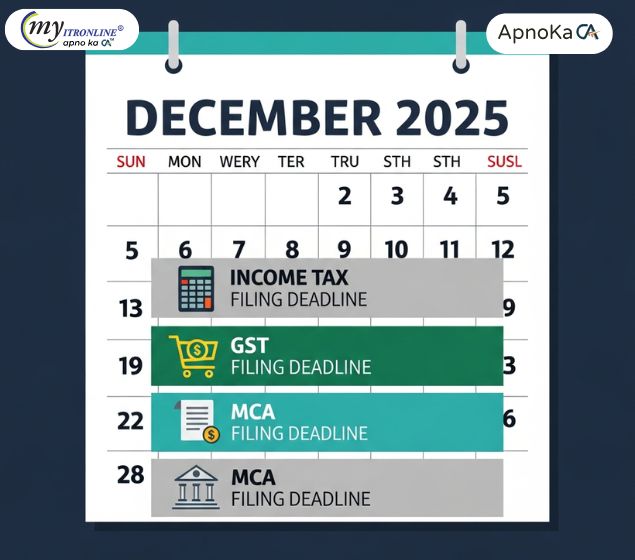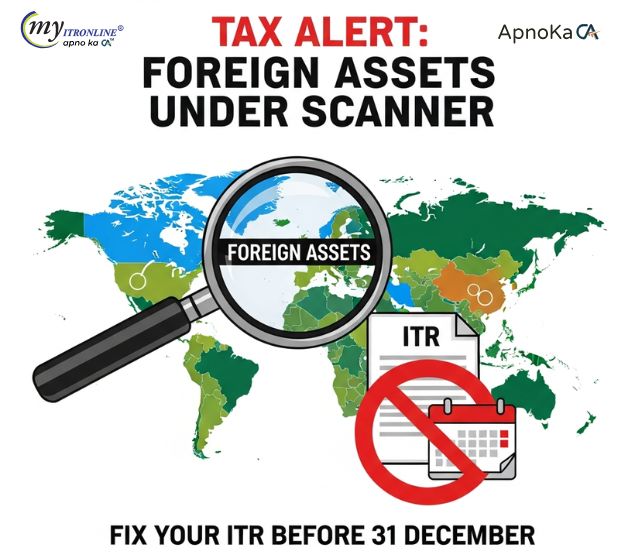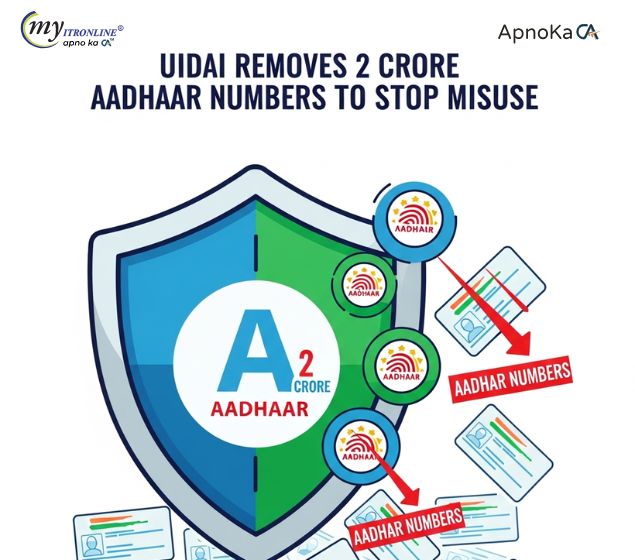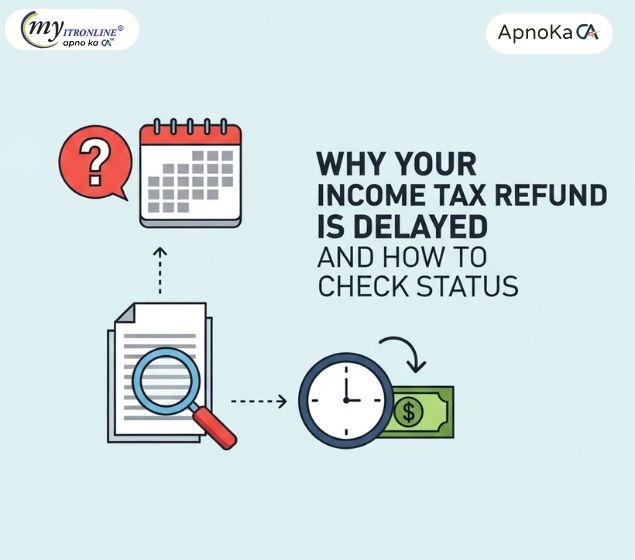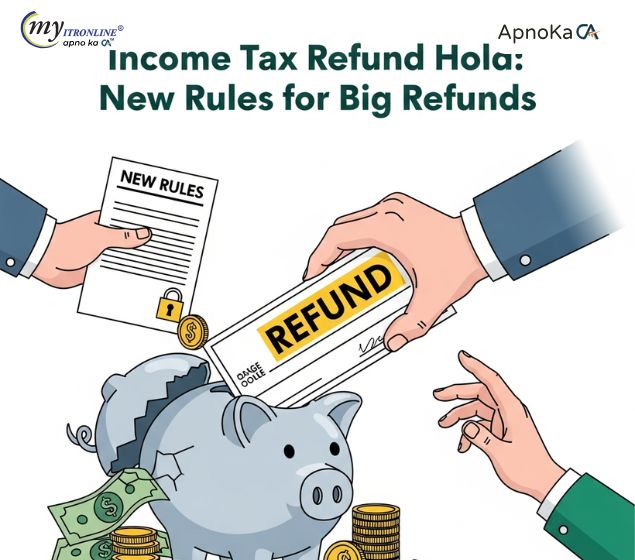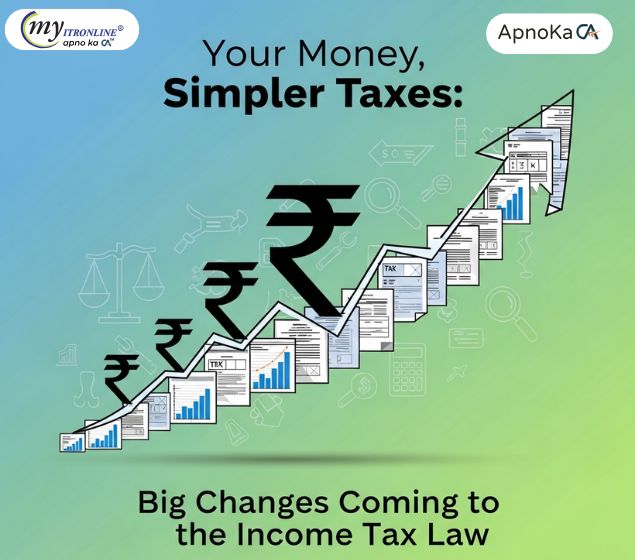ITR Filing 2025: Avoid These 28+ Costly Mistakes for a Hassle-Free Tax Season
Filing your Income Tax Return (ITR) for AY 2025-26? Avoid the 28+ most common mistakes that can lead to notices, penalties, or delayed refunds. This comprehensive guide covers identity, income reporting, deduction, procedural, and verification errors, plus new regime selection tips. Stay updated, file accurately, and ensure a smooth tax season!
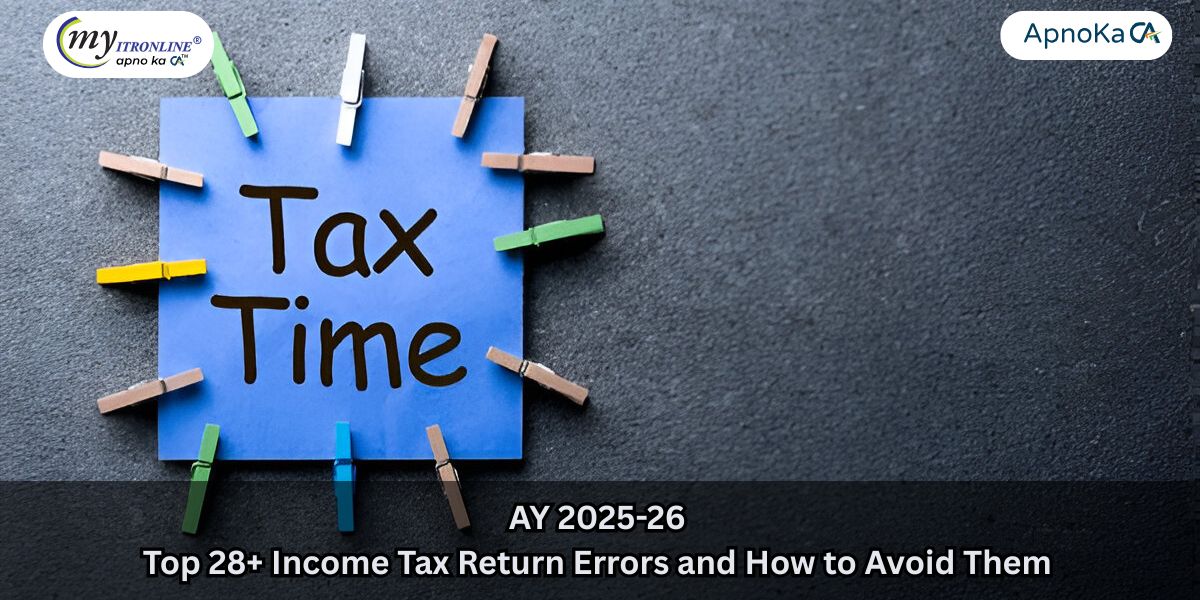
Submitting your Income Tax Return (ITR) is a yearly responsibility that, despite technological advancements making it easier, still necessitates meticulous attention to detail. For the Assessment Year (AY) 2025-26, which relates to the Financial Year (FY) 2024-25, it is essential for taxpayers to be extra cautious to evade typical errors that might result in notices, fines, delayed refunds, or even the annulment of your return.
Making sure everything is accurate on the first attempt can save you time, anxiety, and potential financial repercussions. Based on expert insights and frequently encountered mistakes, here are more than 28 common ITR filing errors to avoid in 2025:
I. Fundamental Identity & Contact Errors
Verifying that your basic information is correct is the initial important step.
- Incorrect PAN or Aadhaar Number: Any mismatches or mistakes in your Permanent Account Number (PAN) or Aadhaar number can hinder the successful submission or processing of your return.
Avoidance: Carefully review these numbers from your official documents. Ensure your Aadhaar is linked with your PAN; this is a requirement for e-filing. - Using Aadhaar Enrolment ID Instead of Aadhaar Number: For AY 2025-26, utilizing the Aadhaar Enrolment ID for PAN applications or ITR submission is no longer permitted. You are required to provide your actual Aadhaar number.
Avoidance: Secure your Aadhaar number if you currently only possess the enrolment ID. - Incorrect Personal Details: Discrepancies in your Name, Date of Birth, or Gender that do not align with your PAN database records.
Avoidance: Cross-check these details against your PAN card and update as necessary via the income tax portal or NSDL/UTIITSL. - Wrong Contact Information: Entering an erroneous email or mobile number.
Consequence: You might miss crucial communications, notifications, or OTPs for e-verification from the Income Tax Department.
Avoidance: Make sure your primary email and mobile number are accurately entered and active. Update your profile details on the e-filing portal in advance. - Incorrect Address: If your current address is not consistent with the one recorded or specified in the ITR.
Consequence: Physical communications or notices could be wrongly delivered.
Avoidance: Provide your accurate and complete postal address in the ITR form.
II. Income Reporting Blunders
Neglecting to report all sources of taxable income is a primary reason for receiving notices.
- Not Reporting All Bank Accounts: Failing to disclose all active savings, current, or NRI bank accounts maintained during the financial year.
Consequence: The department obtains information from banks regarding transactions and interest; non-disclosure can trigger alerts.
Avoidance: Include all of your active bank accounts for FY 2024-25 in the ITR form. - Omitting Savings Account Interest: Assuming interest from savings accounts is tax-free due to eligibility for a deduction under Section 80TTA/80TTB.
Consequence: The interest income must first be reported under 'Income from Other Sources' before you can claim the deduction. This can lead to discrepancies with AIS/TIS.
Avoidance: Request interest certificates from your banks and report the total interest earned on savings. Claim the deduction under Section 80TTA (up to ₹10,000 for individuals/HUFs below 60) or Section 80TTB (up to ₹50,000 for resident senior citizens) from your Gross Total Income. - Missing Fixed Deposit/Recurring Deposit Interest: Failing to report interest accrued from FDs or RDs.
Consequence: This income is fully taxable, and banks report it via TDS (Form 16A) and directly to the IT Department (in AIS/TIS). Not reporting it ensures a mismatch.
Avoidance: Obtain interest certificates or check Form 26AS/AIS/TIS for interest income details and accurately report them under 'Income from Other Sources'. - Ignoring Dividend Income: Forgetting to include dividend income in your report.
Consequence: Dividends are subject to tax in the recipient's hands. Companies deduct TDS if the dividend amount surpasses ₹5,000 (the threshold will increase to ₹10,000 from April 1, 2025, applicable for FY 2025-26 / AY 2026-27, but for FY 2024-25 / AY 2025-26, the ₹5000 threshold for TDS remains in effect for individuals). This income should be reported in Form 26AS/AIS/TIS.
Avoidance: Keep track of dividends earned from shares/mutual funds and categorize them under 'Income from Other Sources'. Ensure reconciliation with Form 26AS/AIS/TIS. - Neglecting to Report Rental Income: Not declaring income derived from renting out a residential property.
Consequence: This income is subject to tax under 'Income from House Property'.
Avoidance: Report rental income, apply the standard deduction of 30% on the Net Annual Value, and deduct home loan interest (if applicable) under Section 24(b). - Errors in Reporting Capital Gains: Mistakes made in calculating or reporting capital gains from the sale of shares, mutual funds, property, etc. This encompasses:
- Failing to differentiate between Short-Term and Long-Term Capital Gains.
- Mistakenly calculating the acquisition cost or indexation benefit (for LTCG on property/debt MFs).
- Neglecting to report LTCG from listed equities/MFs exceeding the exemption limit (₹1 Lakh under Section 112A). For AY 2025-26, this exemption threshold for Section 112A gains is ₹1.25 Lakh.
- Incorrectly reporting gains/losses that qualify for specific tax rates (e.g., STCG on equities under Section 111A taxed at 15%).
- Failing to disclose even minor LTCG under Section 112A (up to ₹1.25 Lakh) if you have capital losses to carry forward (as this may render you ineligible for simpler forms like ITR-1/4).
- Neglecting to Report Income from Previous Employer: If you changed jobs during the year and did not disclose the income and TDS details from your last employer.
Consequence: Your overall income and TDS credit may be miscalculated.
Avoidance: Gather Form 16 from your previous employer and merge it with the information from your current employer's Form 16. Report the income from both employers in your ITR. - Ignoring Freelance/Professional Earnings: Not declaring income from freelance work, consulting, or other professional services, regardless of how irregular or small it may be.
Consequence: This income is taxable under 'Profits and Gains of Business or Profession'.
Avoidance: Maintain accurate records of income and expenses. Explore the presumptive taxation scheme (ITR-4) if you are eligible, which simplifies the filing process. - Not Reporting Exempt Income: While exempt income (such as PPF interest, certain agricultural income) is not taxed, it often needs to be disclosed on the ITR for transparency.
Avoidance: Carefully review the schedules in the ITR form and report exempt income whenever necessary.
III. Errors in Deductions & Exemptions
Incorrectly claiming or overlooking eligible deductions/exemptions impacts your overall tax liability.
- Claiming Ineligible Deductions: Requesting deductions for investments or expenses that don’t qualify under specific sections (for example, attempting to claim a donation to a non-eligible entity under Section 80G).
Consequence: This can result in an inaccurate tax calculation and possible notice.
Avoidance: Grasp the eligibility criteria for each deduction claimed (80C, 80D, 80G, 80E, etc.). Keep relevant supporting documents organized. - Overlooking Eligible Deductions/Exemptions: Not claiming deductions for qualifying investments (PPF, ELSS, NSC, etc. under 80C), permissible expenses (like medical insurance under 80D, interest on education loans under 80E), or applicable exemptions (like HRA or LTA, mainly under the Old Regime).
Consequence: You might end up paying more taxes than you are legally obligated to.
Avoidance: Assess all possible deductions and exemptions available to you based on your investments, expenses, and income configuration. - Not Utilizing Standard Deduction: Salaried workers and retirees neglecting to claim the standard deduction (₹50,000 in both Old and New Regimes for AY 2025-26).
Avoidance: Ensure you apply this deduction to your gross salary or pension. - Incorrectly Claiming HRA Exemption: Claiming HRA exemption without having a legitimate rent agreement or making rent payments.
Avoidance: Verify that you satisfy the requirements for HRA exemption and possess proof of rent payment.
IV. Procedural & Verification Errors
Even if you complete the form correctly, procedural mistakes can render the return invalid.
- Selecting the Incorrect ITR Form: Choosing an ITR form (ITR-1 to ITR-7) that does not correspond to your sources of income, total earnings, and taxpayer category (Individual, HUF, etc.).
Consequence: Your return may be deemed 'defective' or even 'invalid', necessitating the submission of a revised return.
Avoidance: Carefully identify the appropriate ITR form based on the intricacy of your income sources and total earnings. Review the official ITR form guidelines for AY 2025-26. For AY 2025-26, note the relaxed eligibility for ITR-1/4 for minor LTCG under section 112A if there are no carried forward losses. - Choosing the Wrong Assessment Year: Filing for AY 2025-26 (Income of FY 2024-25) but selecting an incorrect assessment year on the form or portal.
Consequence: The return will pertain to a different timeframe and will not meet your current filing obligations.
Avoidance: Always double-check that you are filing for the Assessment Year 2025-26. - Discrepancy with Form 26AS / AIS / TIS: The income and TDS/TCS specifics reported in your ITR do not align with the information on Form 26AS, Annual Information Statement (AIS), or Taxpayer Information Summary (TIS).
Consequence: This can result in processing delays, notices requesting clarification, reduced refunds, or increased tax liabilities.
Avoidance: Always download your most recent Form 26AS, AIS, and TIS from the income tax portal prior to filing. Reconcile the income and TDS/TCS details with your personal records (Form 16, Form 16A, bank statements, etc.). Resolve any discrepancies before submission. - Failing to Verify the ITR After Submission: Simply submitting the ITR online isn’t sufficient. You need to verify it.
Consequence: An unverified return is regarded as invalid, essentially suggesting that you haven't filed at all.
Avoidance: E-verify your ITR within 30 days of submission using Aadhaar OTP, net banking, or other available methods. Alternatively, mail a signed physical copy of ITR-V to the CPC, Bengaluru within 30 days. E-verification is faster and preferred. - Missing the Filing Deadline: Not filing your ITR by the due date (July 31, 2025, for most individual taxpayers not under audit).
Consequence: Late filing fees (up to ₹5,000 under Section 234F), interest on unpaid taxes (Section 234A), inability to carry forward certain losses, and the possibility of heightened scrutiny.
Avoidance: Collect all necessary documents early and submit your return well ahead of the deadline to prevent last-minute issues.
V. Regime Selection & Specific Reporting Nuances
- Selection/Notification of Incorrect Tax Regime: Failing to intentionally select the more advantageous tax option. For individuals with business income, inaccurately notifying the choice of tax regime (Old vs. New) or neglecting to do so via Form 10-IEA (if necessary).
Outcome: This may result in paying a higher tax amount. For business income, not submitting Form 10-IEA by the deadline limits your ability to change regimes.
Prevention: Assess your tax liability under both regimes. If you hold business income and wish to exit the New Regime or revert to the Old Regime, ensure you comprehend the regulations and file Form 10-IEA by the income tax return due date. - Overlooking Notices from the Income Tax Department: Receiving notifications regarding discrepancies or the need for clarification but failing to respond within the required timeframe.
Outcome: This can result in penalties, a best judgment assessment by the tax official, or potentially legal actions.
Prevention: Treat any notice seriously. Read it thoroughly, comprehend the concern, compile necessary information/documents, and respond without delay, seeking professional guidance if necessary. - Mistakes in Reporting TDS Section: For AY 2025-26, the income tax return forms necessitate indicating the particular TDS section under which tax has been deducted on income aside from salary.
Outcome: Discrepancy in reported TDS credit.
Prevention: Consult your Form 16A or TDS certificates to determine the correct TDS section and accurately report it in the income tax return. - Not Reporting High-Value Transactions: While AIS/TIS includes this information, failing to align your income tax return details with reported high-value transactions (such as substantial property transactions, large cash deposits, high-value credit card expenditures) may lead to scrutiny.
Prevention: Carefully analyze your AIS/TIS and ensure that your declared income and assets align with the financial activities reported.
Conclusion
Submitting a precise and complete Income Tax Return by the deadline is not only a legal obligation but is also essential for effective financial management. By steering clear of these typical errors in AY 2025-26, you can facilitate a seamless process, avoid unnecessary complications, and ensure timely receipt of any tax refund.
Take your time to collect all relevant documents ahead of schedule, reconcile your income and TDS data with Form 26AS, AIS, and TIS, select the appropriate ITR form and tax regime, and importantly, remember to verify your return after submission. If your tax circumstances are complicated, do not hesitate to seek help from a qualified tax professional.
FILING YOUR INCOME TAX RETURN F.Y 2024-25 (A.Y. 2025-2026) WITH MYITRONLINE
The income tax filing deadline is right around the corner. If you haven’t filed yet, do it today with Myitronline! Avoid last minute rush and file your tax return today on MYITRONLINE in Just 5 mins.(www.myitronline.com)
If you are looking for eCA assistance to file your income tax return/ GST, you can opt for MYITRONLINE eCA assisted plan starting
Upload Salary Individual Form-16
If you have any questions with filing your tax return, please reply to this mail. info@myitronline.com OR call 9971055886,8130309886.
Note-All the aforementioned information in the article is taken from authentic resources and has been published after moderation. Any change in the information other than fact must be believed as a human error. For queries mail us at marketing@myitronline.com
PAN Card Holders Advisory
Krishna Gopal Varshney
An editor at apnokacaKrishna Gopal Varshney, Founder & CEO of Myitronline Global Services Private Limited at Delhi. A dedicated and tireless Expert Service Provider for the clients seeking tax filing assistance and all other essential requirements associated with Business/Professional establishment. Connect to us and let us give the Best Support to make you a Success. Visit our website for latest Business News and IT Updates.
Leave a reply
Your email address will not be published. Required fields are marked *Share this article
Krishna Gopal Varshney, Founder & CEO of Myitronline Global Services Private Limited at Delhi. A dedicated and tireless Expert Service Provider for the clients seeking tax filing assistance and all other essential requirements associated with Business/Professional establishment. Connect to us and let us give the Best Support to make you a Success. Visit our website for latest Business News and IT Updates.
View articles








